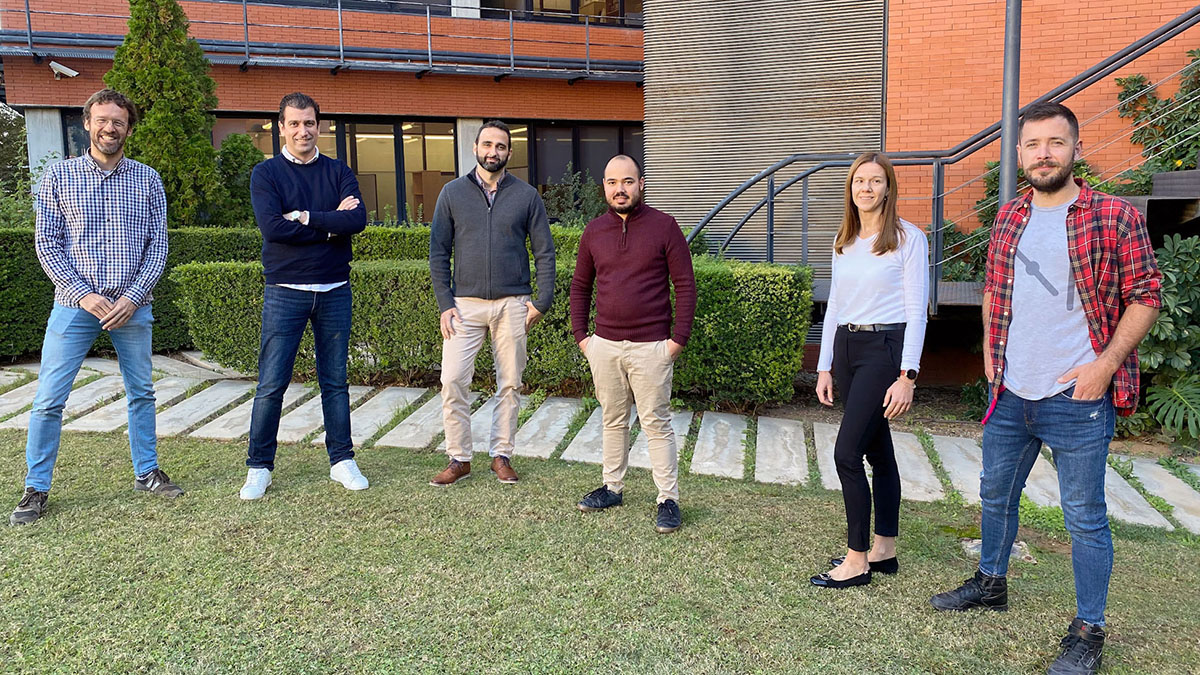The Abellan's team
The Institute of Molecular Science (ICMol) works on the development of totally recyclable packaging capable of protecting food from the classic deterioration caused by the action of water and oxygen. It does so by using lamellar double hydroxides (LDH), a kind of two-dimensional and multifunctional synthetic clay with interesting applications in nanotechnology. The project has the collaboration of ITENE and the financing of the Valencian Innovation Agency (AVI).
Food distribution chains have long demanded a type of multilayer packaging that shields packaged foods and protects them from deterioration caused by the action of water or gases, mainly oxygen. They are known as ‘barrier packaging’ and are designed to counteract two major environmental and sustainability problems: the high level of plastic waste that affects the planet and the more than 1.3 billion tons of food wasted each year in the world.
The LDHPACK project, led by the chemist Gonzalo Abellán –distinguished researcher of excellence of the GenT Plan of the Valencian Government and head of the 2D-Chem group of the ICMol–, consists of the large-scale development of two-dimensional materials based on hybrid laminar hydroxides (LDH ) and its application to current multilayer packaging used in the industry.
“It is about producing films with high barrier capacity by incorporating LDH additives”, explains Gonzalo Abellán. “Although LDH is being effective in slowing down the effect of oxygen in food, the challenge we face is mainly that of adding hydrophobicity to the material; that is, to be able to create a barrier also against the effects of water by incorporating certain molecules between the sheets of this multifunctional material”, he adds.
Market demands towards a more evolved and environmentally friendly food packaging system are in line with the European Plastics Strategy, which aims at 100% reuse and recycling by 2030, and with the 2021-2023 Action Plan for the Circular Economy, which proposes a longer life for material products and resources in order to reduce waste. For this reason, the interest in this new technology that simplifies the composition of multilayer containers commonly used in ‘packaging’ and eliminates delamination problems – elimination of layers in the recycling process – is gaining real interest.
The LDHPACK project (Development of 100% recyclable barrier flexible packaging through the additivation of LDHS in coatings) has received 208,000 euros from the Valencian Innovation Agency and the highest valuation in its line of subsidies for valorisation projects and transfer of research results to companies. The project, which has the collaboration of the Technological Institute of Packaging, Transport and Logistics (ITENE), will result in 100% recyclable flexible packaging that will replace current multilayer packaging. The ICMol team already has a patent in process and the seed for the launch of a spin-off for commercialisation. In addition, its promoters project together with ITENE another patent aimed at the polymeric coating of the packaging.


